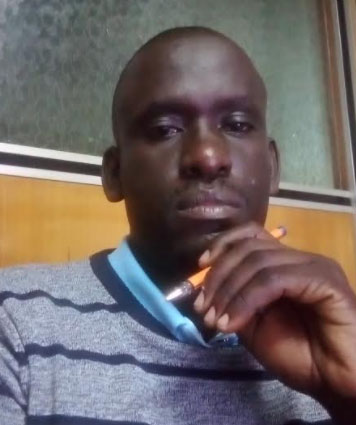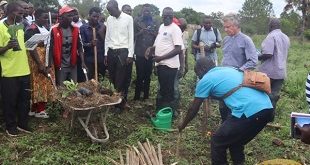
If buildings can collapse on their own in calm Kampala, what would happen if a 7.0+ earthquake visited Uganda?
COMMENT | Samson Tinka | A magnitude 7.8 earthquake struck Turkey’s southeast and neighboring Syria on February 6, killing more than 47,000 people and leaving more than a million people homeless along with an economic cost expected to run into billions of dollars.
The historical cities of Antakya, Sanliurfa and Aleppo have been destroyed in the Turkey-Syria earthquake.
Up to 24,000 buildings (264,000 apartments) especially storied buildings crumbled with its occupants. It is said 17 million or so people are affected with no shelter, food, and medical assistance. Schools, hospitals, markets, roads, power stations, transport facilities, internet connectivity, have been seriously impaired. Sanitation facilities are almost not there.
The Turkish Disaster and Emergency Management Presidency (AFAD) says search and rescue operations are ending in most provinces two weeks after the disaster.
“The death toll due to the earthquakes rose to 40,642, and the work of searching and rescue for people stuck under the debris has ended in most of the provinces,” Yunis Sezar, head of AFAD, said in a presser on Saturday 18th Feb 2023. The World Health Organization estimates that some 26 million people across both Turkey and Syria need humanitarian aid.
Andrew Lee, professor of public health at university of Sheffield has commented on the complexity involved in mounting search and rescue operations, saying, “Earthquake disasters are complex emergencies, with widespread impacts on society, infrastructure, local economies, health, education and other sectors.
Turkey has been hit by earthquakes before, but it seems it’s not learning from past experiences.
“This is a disaster caused by shoddy construction, not by an earthquake,” said David Alexander, a professor of emergency planning at University College London.
Builders commonly use lower quality materials, hire fewer professionals to oversee projects and don’t adhere to various regulations as a way of keeping costs down, according to Muhcu, president of the country’s Chamber of Architects. Whereas earthquakes are natural disasters, sometimes mans activities increases the impact on humans and other infrastructures.
What if it was Uganda?
My mind raced from Turkey to Uganda after the earthquake and its effects. My thougts raced to our Kampala metropolitan area.
It may not be necessarily earthquake, it can be other forms of disaster like flooding, bursting of Lake Victoria banks or massive fire outbreak. Is Uganda ready to cope with rescue, recovery, reinstatement of social services?
In the recent past, Uganda faced two light emergencies that are worth reflecting on. This was the locusts invasion and the rising levels of Lake Victoria
At Kituburu Lake Victoria surging waters almost cut off Entebbe from the rest of Uganda, it called intervention of number one office – The president – to have some works done to prevent water from crossing the only road to Entebbe international airport.
The locusts called for huge intervention of Uganda People’s Defence Forces (UPDF) and the exercise cost Uganda billions . These two emergencies did not happen overnight. The raising waters was known and kept massing up week after the other. Nevertheless, at some point there was some form of stampede and scare.
Kampala’s mushrooming buildings
One of the fastest growing sectors in Uganda is real estate. Even during the COVID-19 lockdown, estate developers were allowed to continue with construction.
However, use of substandard raw materails, wrong mixture ratios of cement and sand, weak steel- iron bars, construction without approval plans is very common in Uganda especially in urban areas. Its very common in Uganda for buildings to collapse during construction.
Edmund Mutatiina, a civil engineer, attributes the rise in collapsed buildings to owners who don’t follow instructions given by the site engineers. He said most buildings that have collapsed are commercial and not residential because “clients tend to be mean when it comes to commercial building…they want to take shortcuts.”
If buildings can collapsed on their own, what would happen with 7.0+ earthquake visited Kampala or Uganda?
What will happen if it rained for three days nonstop with Kampala’s poor draining systems, surrounded by Lake Victoria, River Mayanja, River Katonga and other small rivers?
Heavy rain in Kampala for three hours if often the talk in the town since a lot of damage is often caused, including affecting traffic flow.
Is Uganda prepared for disaster emergencies?
Disaster management is a process of effectively preparing for and responding to disasters. It involves strategically organizing resources to lessen the harm that disasters cause. It also involves a systematic approach to managing the responsibilities of disaster prevention, preparedness, response, and recovery.
Prevention deals with eliminating what woud either cause disaster or escalate after effects.
Disaster prevention would deal making sure building following right procedures, use of right materials and deploying of right qualified personnel to supervise construction works. Prevention is making sure that drainage channels are wide, well-constructed, timely serviced etc. Prevention is making sure that wetlands are protected, encroaches handled with steel hands and any activities in wetlands destroyed.
Preparedness is making sure that rescue services are available like ambulances, hospitals, rescue teams, excavation equipment, trained personnel and other necessary logistics. A few disasters Uganda has experienced like Bududa and Kasese floods have exposed Uganda’s ill preparedness in dealing with disasters. We need to check in advance for faulty or no equipment, lack or no tents, food water, medical apparatus needed to respond to disasters.
Disasters especially natural ones will always hit us, what makes the difference is how the government is able to respond or mobilize response. To me, this is the weakest link. The inability to quickly and adequately respond to emergencies makes the whole disaster complex and more tragic.
Turkey’s response timeliness and readiness was not the best even after getting support from European and other countries almost immediately. In Africa, its almost everyone for himself and God for us all.
The COVID-19 disaster should have been the best lesson for the African continent. Looks like no lessons have been learnt.
The Europeans refused to give Africa vaccines until they had circulated their continent. Africa lacked technology to develop its own vaccines and other protocols and many Africans died. This should have been an eye opener to Africans in general and Ugandans in particular on disaster management.
Recovery is the last mile in disaster management. This is the ability to restore systems, processes, procedures, connectivity and social services. This is also a critical process of disaster management.
In Turkey, the number of patients were many, with no accommodation, no food, overwhelmed hospitals, little medical supplies. Lots of people survived earthquake but are dying of other after effect related illnesses and shortage of necessities.
Uganda is seated with multiple disasters in waiting especially those associated with environmental degradation.
Swamps have been eaten up, forests cleared, mountains dug, drainage channels built on especially in towns and cities.
The day the environment will choose to reformat itself, the cries, death, injuries will be many. Ugandan societies have no disaster management in mind, our leaders are un-conscious about disaster management, politicians are more concerned with next term of office than next generation survival.
It seems ,says Jyoti Koirala, that “the importance of disaster management will be only realized after passing through a disaster.”
 Samson Tinka is a safety and security consultant | Director Matts Secure Solutions Ltd | tindsam@yahoo
Samson Tinka is a safety and security consultant | Director Matts Secure Solutions Ltd | tindsam@yahoo
 The Independent Uganda: You get the Truth we Pay the Price
The Independent Uganda: You get the Truth we Pay the Price



